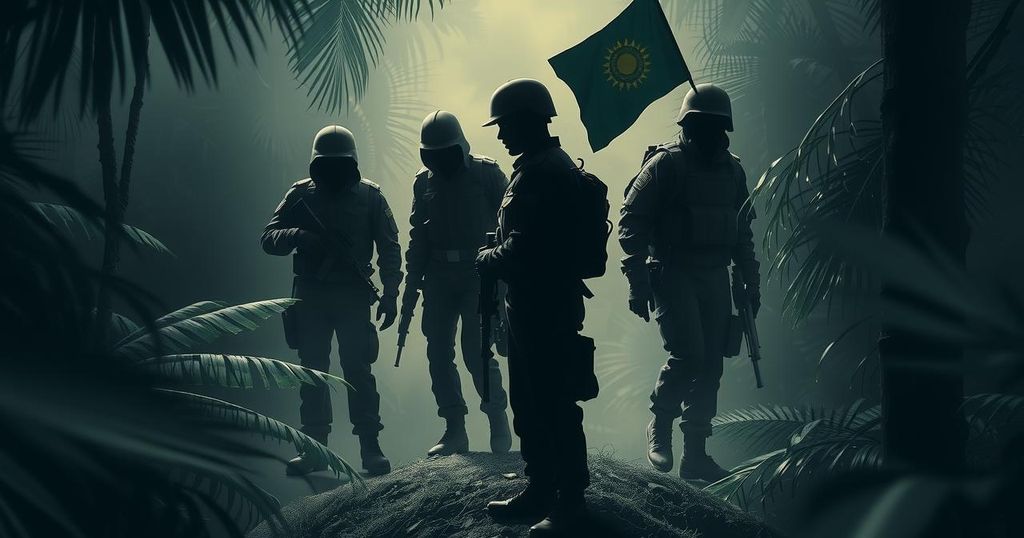In the DRC, Rwandan soldiers and M23 rebels are accused of disguising themselves as members of the Congolese army, leading to confusion amidst the conflict. Instances of forcibly recruiting children have also been reported. The local populace is weary of the ongoing war and may seek change, though such factions often disguise their true nature. Archbishop Kataliko’s reflections on suffering emphasize that the true victims of war are often the innocents.
Reports indicate manipulation involving Rwandan soldiers and M23 rebels in the Democratic Republic of the Congo (DRC), where these forces disguise themselves as members of the Congolese army (FARDC). A resident from Bukavu observed a scenario in Kamanyola where soldiers initially wore FARDC uniforms, only to reveal M23 clothing underneath when M23 commanders arrived. This tactic raises suspicion about the authenticity of military appearances in the region.
Furthermore, the recruitment of children into combat roles presents a grave concern. Eyewitness accounts from Uvira suggest that an unidentified armed group forcibly entered a school to abduct students for military recruitment. Amidst this chaos, clashes erupted between fleeing FARDC soldiers and local self-defence groups, leading to fatalities and injuries; there are suspicions that some combatants may be disguised M23 or RDF members.
The local populace exhibits fatigue regarding the ongoing conflict, with the M23’s advances causing heightened tensions, particularly along the Burundian border. Observers warn that unless international intervention occurs, Rwandan forces and their allies in the DRC will likely sustain their aggressive push forward, as local military and civil institutions appear chronically weakened or compromised.
Despite the turmoil, it is suggested that the civilian community may seek change, observing that the M23 claims to offer stability in the territories under their control. However, vigilance is advised, as historical patterns reveal that such factions often alter their identities while maintaining their intrinsic aggressiveness.
Archbishop Emeritus Emmanuel Kataliko’s reflections from a past Lenten letter resonate profoundly in this context. He articulated that God empathizes with those suffering, asserting that Christ embodies the pain of the populace. Ultimately, the message underscores that it is the innocent civilians who bear the ultimate betrayal inflicted by war.
This analysis sheds light on the complex interplay between military deception and civilian suffering in the DRC. Disguised soldiers contribute to the chaos and confusion on the ground, while forced recruitment of children exacerbates the humanitarian crisis. Furthermore, the populace’s weariness signals a potential desire for change, though historical patterns suggest that the challenges posed by misleading factions like the M23 persist. Ultimately, empathy and understanding of the common person’s plight remain paramount.
Original Source: www.vaticannews.va






